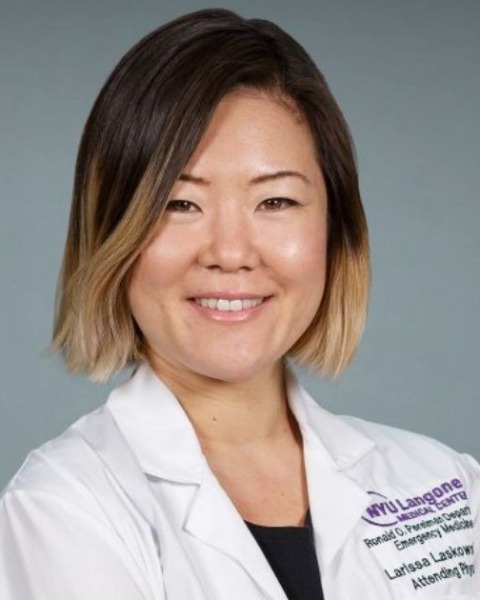Academic and Research Skills
Adolescent Medicine
Advocacy
Community Pediatrics
Emergency Medicine
Health Equity/Social Determinants of Health
Injury Prevention
Mental Health
Public Health
School and Community Health
Preventing Teen Fentanyl Overdose Through School-Based Education and Naloxone Training
-

Larissa Laskowski, DO
Assistant Professor
NYU Grossman School of Medicine | Health + Hospitals Bellevue
New York, New York, United States -
AH
Aaron Hultgren, MD MPH MAT
NYU Grossman School of Medicine | Health + Hospitals Bellevue
New York, New York, United States -

Karen Goodman, MD (she/her/hers)
attending physician
NYU Grossman School of Medicine/Health and Hospitals Bellvue
Englewood, New Jersey, United States -

Chanelle Coble-Sadaphal, MD (she/her/hers)
Assistant Professor of Pediatrics
NYU School of Medicine
New York, New York, United States -

Joanne Agnant, MD, MSc (she/her/hers)
NYSIM Associate Medical Director/Assistant Professor
NYU Grossman School of Medicine | Health + Hospitals Bellevue
New York, New York, United States -
.jpg)
Jennifer Grad, MD
Pediatric Emergency Medicine Fellow
NYU Grossman School of Medicine | Health + Hospitals Bellevue, United States -
SB
Stefan Breitling, MD
Baylor College of Medicine, United States
-

Samantha Kerester, MD (she/her/hers)
Resident Physician, PGY2
NYU Grossman School of Medicine | Health + Hospitals Bellevue
Brooklyn, New York, United States -
LK
Lily Kolb, MPH (she/her/hers)
Medical Student
Donald and Barbara Zucker School of Medicine at Hofstra/Northwell
Uniondale, New York, United States
Leader(s)
Co-Leader(s)
Workshop
Description: In the shadows of a global pandemic, the US opioid epidemic has continued its advance. In the last two years, opioid overdose deaths have surpassed 100,000 per year and teen overdose deaths have tripled. In the wake of an adolescent mental health crisis, and with return to “normal” life poised to reset a brief decline in teen drug use during lockdown, the ubiquity of fentanyl in counterfeit pills such as “Xanax”, “Adderall” and “Percocet” poses an existential threat. Thus, with the same urgency that we communicated the risks of Covid-19, we must educate every high school student, parent, and school about this imminent crisis.
Since 2015, the Prevention Education Partnership (PEP) has been deploying doctors and future doctors into schools to engage adolescents in conversation about the most immediate threats to their health and well-being. Through PEP Talks, an evidence-informed, harm-reduction drug education curriculum, our instructors share their expertise on topics including vaping, marijuana edibles, Xanax, alcohol, and opioids.
This workshop provides clinicians with a Fentanyl PEP Talk toolkit, training the trainer in the provision of school-based opioid education and naloxone training for high school students, parents, teachers, and school staff. An interactive didactic session describes how opioids work, why overdoses are deadly, and tests participants’ knowledge of fentanyl, while sharing real overdose case stories with sensitivity to triggering content. Through small group learning and case-based simulation, participants are taught how to identify and respond to an opioid overdose with take-home naloxone kits.
Learning Objectives:
- Communicate the risks of unintentional fentanyl overdose to adolescent patients, parents, and other members of the lay public
- Deliver a school-based drug education lesson on fentanyl for three target audiences: high school students, parents, and school staff (i.e. principals, teachers, counselors)
- Train teens and adults in opioid overdose identification and administration of intranasal take-home naloxone
